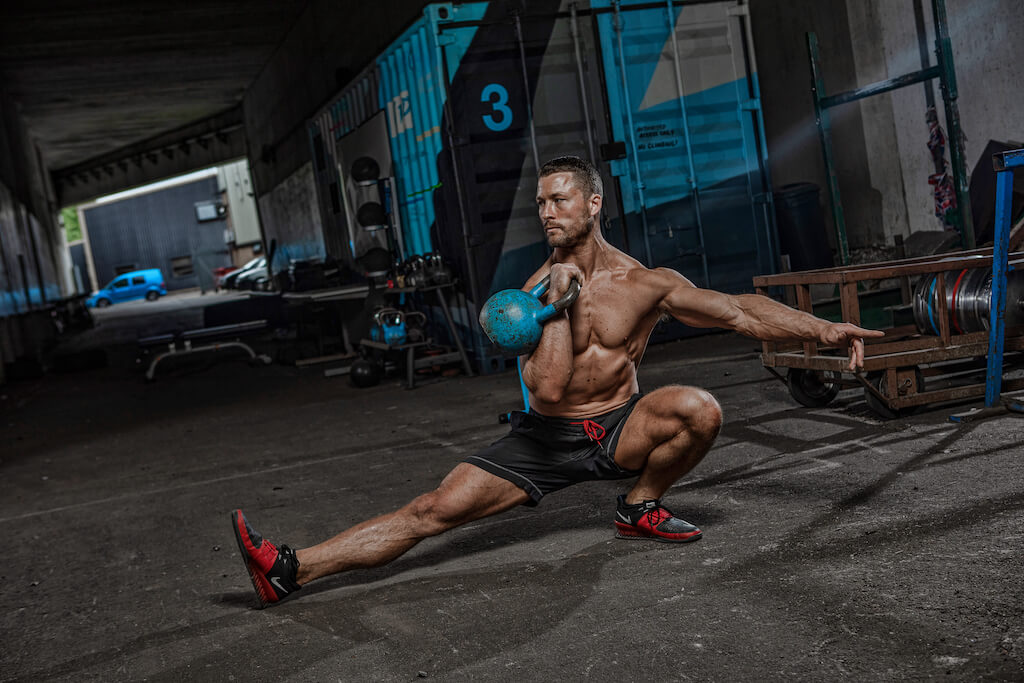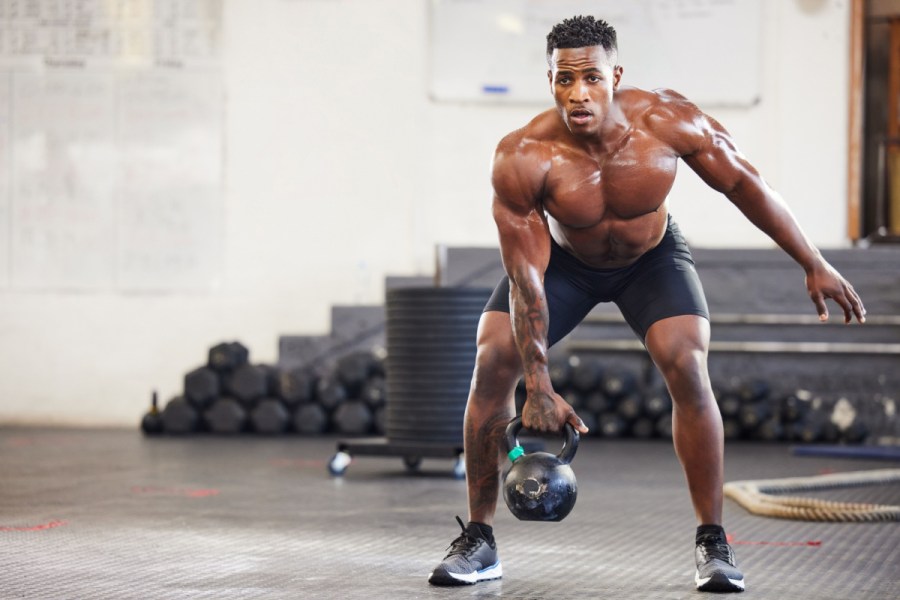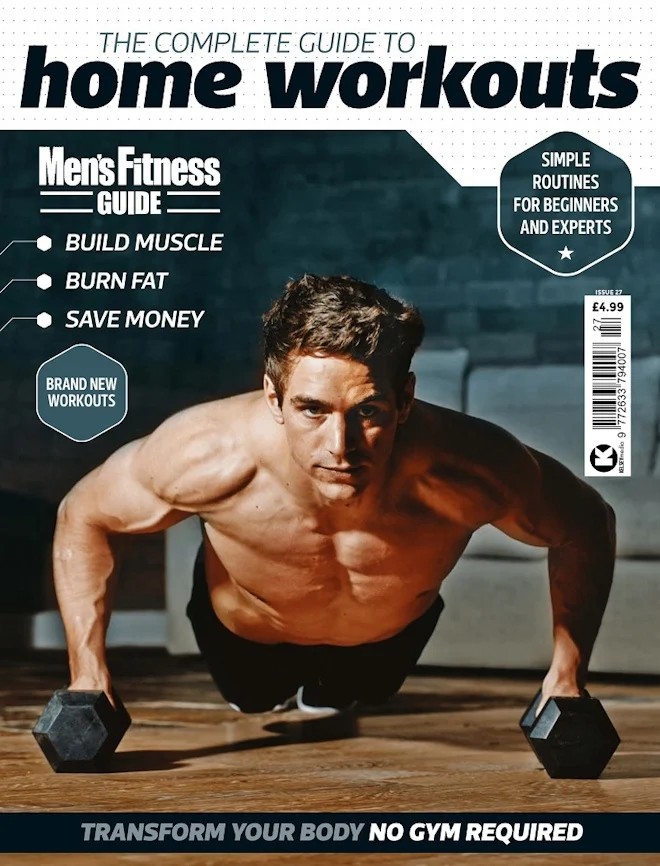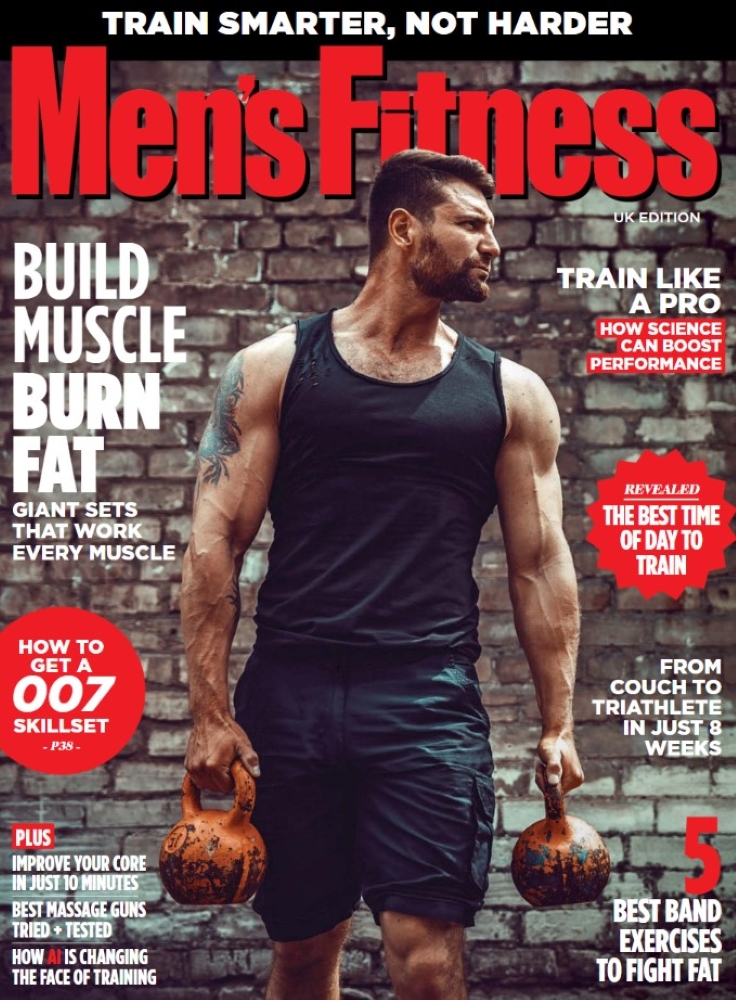Find out how to train with kettlebells with the help of strength specialist James Griffiths.
If you bought one of the best kettlebells over the Covid pandemic, and have since used it for everything but the best exercises (no one’s denying they’re excellent door stops), you won’t be alone. Over the past few years, buying home exercise equipment has become an arms race, with every online store running out of stock faster than containers of new kit can be shipped from overseas.
And of all the home gym kit I was being asked to find for clients and gym members, kettlebells were right at the top. There is an honesty in kettlebell training that I love, so knowing the demand was there made me happy.
Kettlebell work has always been a foundational element of my training, and it’s a major part of programming for the Wild Training brand. It’s just too good to miss for nearly every person.
Three benefits of kettlebells
1. They link your cardio and strength training together. Kettlebell training will help you burn fat, increase your metabolism, and get your whole body stronger. You will see results relatively quickly, and the skills you learn will transfer to a lot of activities outside of kettlebell training, because so many kettlebell movements link your whole body together.
2. Kettlebell training encourages you to link your hips, trunk and shoulders together: the three major components of your core. Get them strong and you’ll be a lot more efficient at transferring and absorbing force across your body.
3. Kettlebells give you a better awareness of hip mechanics. Hinging your hips is such an important movement pattern to be efficient in. And while deadlifting is the daddy of strength training, swinging a kettlebell ballistically really does deliver a lot of bang for your buck, because power tends to be more useful than strength.
That, and the fact that triple extension – where you extend your knees, hips, then ankles – is a big part of kettlebell movements, which mimics how we use those joints in running and jumping. I think that’s why after my first full phase of kettlebell training I felt such a big improvement in my running.

Photography: Simon Howard
How to train with kettlebells
Change your programming
If you don’t have a big range of kettlebell weights, change the programme to become more challenging. That means longer sets and shorter rests.
Learn new movements
If you’ve mastered the basic kettlebell swings and lifts, work on more complicated exercises by adding in other movements. Overhead squats, forward lunge snatches and windmills are good places to start.
Create complexes
Don’t just hit straight kettlebell sets. Kettlebell swings followed by squat jumps, press-ups then thrusters is a great complex. Try 10 reps of each for as many rounds as you can in five minutes.
Integrate other kit
Throw in some Bulgarian split squats with a kettlebell racked in one arm, or turn that into a thruster: where you use the lunge to press overhead. Or try a TRX single-arm hold while you do a renegade row with the kettlebell. Have fun, create new challenges, get new results.
Try kettlebell sport lifting
There are two options. The first is a jerk, where you press one or two kettlebells from the chest (rack) to overhead. Or there’s the snatch, where one kettlebell is swung in one motion from between the legs to overhead. Perform as many reps as you can in ten minutes. There’s just one catch: you can’t set the kettlebell down in those ten minutes or the set is over.
Train smart
Squats, lunges and deadlifts aren’t what I’d consider kettlebell training, because you aren’t really taking advantage of the key benefits of kettlebell training I’ve listed in this article.
Kettlebells are so versatile it’s sometimes easy to start as a beginner and not explore them past basic exercise-video tutorials.
Swings, snatches, jerks, cleans – the big, explosive hip-hinge movements – are where you’ll get the most value from kettlebell training, so focus on those lifts.









